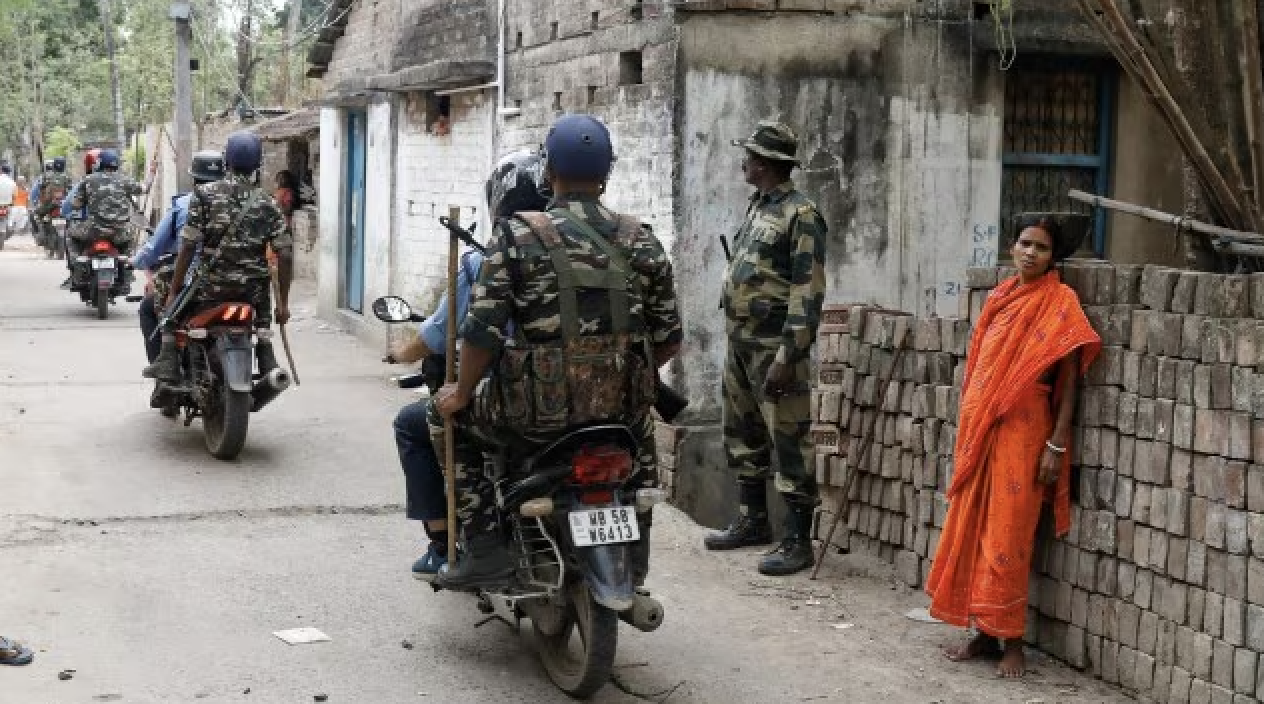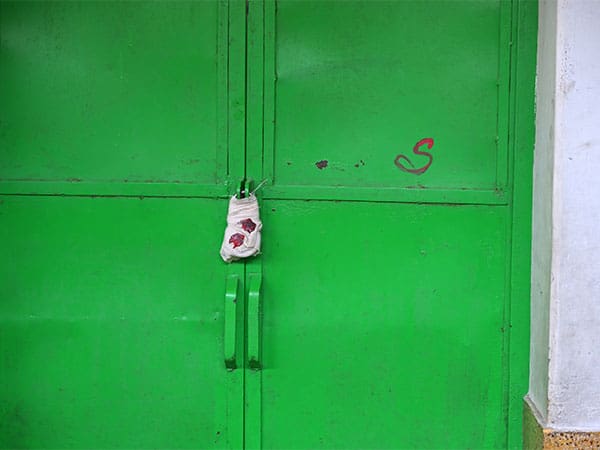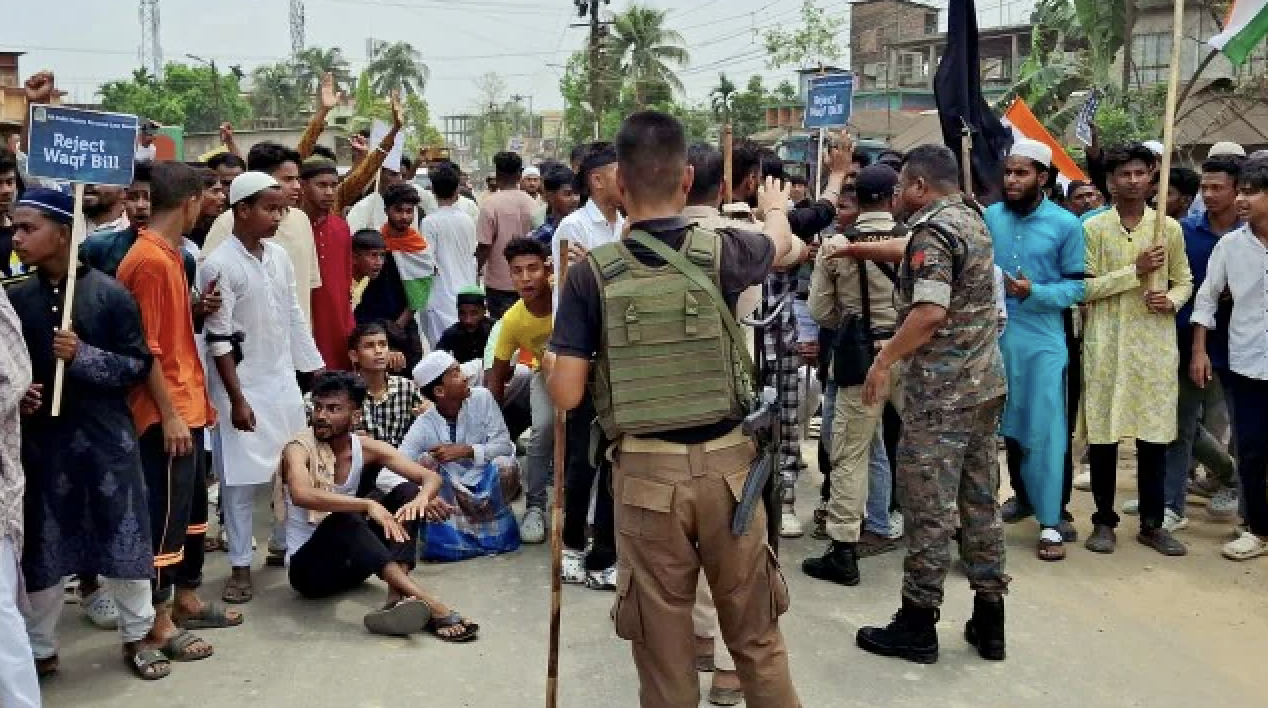
By Haris Zargar
A wave of anti-Muslim violence has swept through India’s tiny state of Tripura as right-wing Hindu nationalist groups carry out attacks against mosques, private properties and businesses owned by the minority community.
It erupted after ideologues belonging to the Hindutva movement, which seeks to establish the hegemony of Hindus and Hinduism in India, staged rallies in reaction to attacks on Hindus in neighbouring Bangladesh, which has a Muslim majority.
Dozens of rallies were held across Tripura, which is bordered by Bangladesh on three sides, with demonstrators clashing with the police after being denied permission for them. A 10 000-strong gathering in Dharmanagar degenerated into arson and vandalism against Muslims.
Jamiat Ulama-i-Hind, a prominent Muslim organisation, submitted a memorandum to the state chief minister on 22 October stating that several mosques and minority-dominated localities were being targeted. Its president, Mufti Tayebur Rahman, said Muslims in “distant areas” were afraid to leave their houses.
Major violence was reported on 26 October when a mosque was damaged and some businesses and residences belonging to Muslims were ransacked. It simultaneously swept across other districts where Muslim residents were intimidated, their shops set ablaze and at least a dozen mosques desecrated. Witnesses saw the Hindutva demonstrators – many of whom carried sticks, iron rods, swords and cans of fuel – shouting inflammatory chants as they marched and hoisted saffron-coloured flags, a symbol of Hindu nationalism, atop mosques.
According to the Association for the Protection of Civil Rights, as many as 27 incidences of mobs attacking mosques, businesses, homes and people in Muslim communities were documented. Its secretary, Nadeem Khan, further said that authorities in Tripura appeared to have no intention of quelling the violence as no significant measures had been taken to stop it. “The government is insisting that the situation is normal and continues to blame incidents in Bangladesh for the violence in the state. The irony is that so far 500 people have been arrested in Bangladesh, but the situation continues to be tense in Tripura,” he said.
Denials and refutations
The state government, led by the Bharatiya Janata Party (BJP), has denied the violence is taking place and repeatedly urged people to refrain from spreading rumours. The Tripura police said on Twitter on 27 October that the situation was “absolutely normal” and no mosques were burnt, adding that some “vested interests” were trying to disturb the peace.
The state administration has, however, banned more than five people from assembling in Tripura and the police said they had beefed up security in sensitive areas.
Meanwhile, the high court in Tripura has directed the state government to file an affidavit by 10 November detailing the measures it has taken to prevent further violence. The BJP also set up a five-member committee to investigate the incidents.
The state secretariat of the opposition Communist Party of India (Marxist) condemned the violence and demanded the arrest of the culprits. “Some small businesses … have suffered greatly. This has created a worrying situation in the area. Locals alleged the [violence] took place in front of the police.”
Senior Indian National Congress leader Rahul Gandhi said the government was “pretending” that there is no problem in the state. “Our Muslim brothers are being brutalised in Tripura. Those who do hatred and violence in the name of Hindu are not Hindus, they are hypocrites. How long will the government continue to pretend to be blind and deaf?” Gandhi tweeted.
BJP spokesperson Nabendu Bhattacharya, however, claimed that there was a “political conspiracy” behind the incidents to “malign the name of the government and to disrupt the peace and tranquillity of the state”. The nationalist right-wing organisation Vishva Hindu Parishad took a similar stance, claiming that reports of violence were “fake news” spread by “jihadists”. Its spokesperson, Vinod Bansal, said it had only arranged peaceful rallies.
Targeting the Left
Tripura is India’s third-smallest state and has a population of about four million people, almost all of whom speak Bengali, the official language of Bangladesh. Muslims account for less than 10% of the population and the state has little history of Hindu-Muslim strife.
The Communist Party of India (Marxist), dominated by upper-caste Bhadralok Hindus, ruled the state for most of the past two decades. Dissatisfaction among some indigenous people led to the foundation of the Indigenous People’s Front of Tripura in 2016. It demanded a separate state, which led to riots between these groups and Bengali Hindus. This allowed the BJP to make inroads into the state after forming an alliance with the front, leading to the current government in 2018.
The latest violence led by Hindutva groups is seen as an extension of a continuing wave of political attacks on the Left in Tripura. According to a statement by the Communist Party of India (Marxist), as many as 44 Left party offices were attacked, burnt and vandalised on 7 and 8 September. Party supporters were also attacked and 67 of their houses and shops burnt. Four-time chief minister and current leader of the opposition Manik Sarkar was prevented from visiting his constituency.
The escalation of violence, observers contend, is owing to the BJP’s loss of political clout among the people on whose support it came to power in Tripura. The Tipraha Indigenous Progressive Regional Alliance, a coalition of “indigenous” political and social groups, has gradually wrested “tribal” support from the BJP.
An editorial in leading newspaper The Indian Express noted that Tripura has its own social fault lines, a legacy of partition and the migration in its wake, which fuelled a violent insurgency in the 1990s. The past few years of peace have helped the state rebuild its economy and emerge as a player in India’s Act East policy, the bedrock of which is friendly relations with Myanmar and Bangladesh.
“It is a cause for concern that after nearly two decades of relative peace, the northeast has started to simmer again. Old fault lines – of land, language, ethnicity, faith – have once again started to shape political mobilisations in the region,” the newspaper said, adding that politicians have been exploiting these for “petty electoral gains at great cost to the nation”.
This story first appeared on newframe.com






